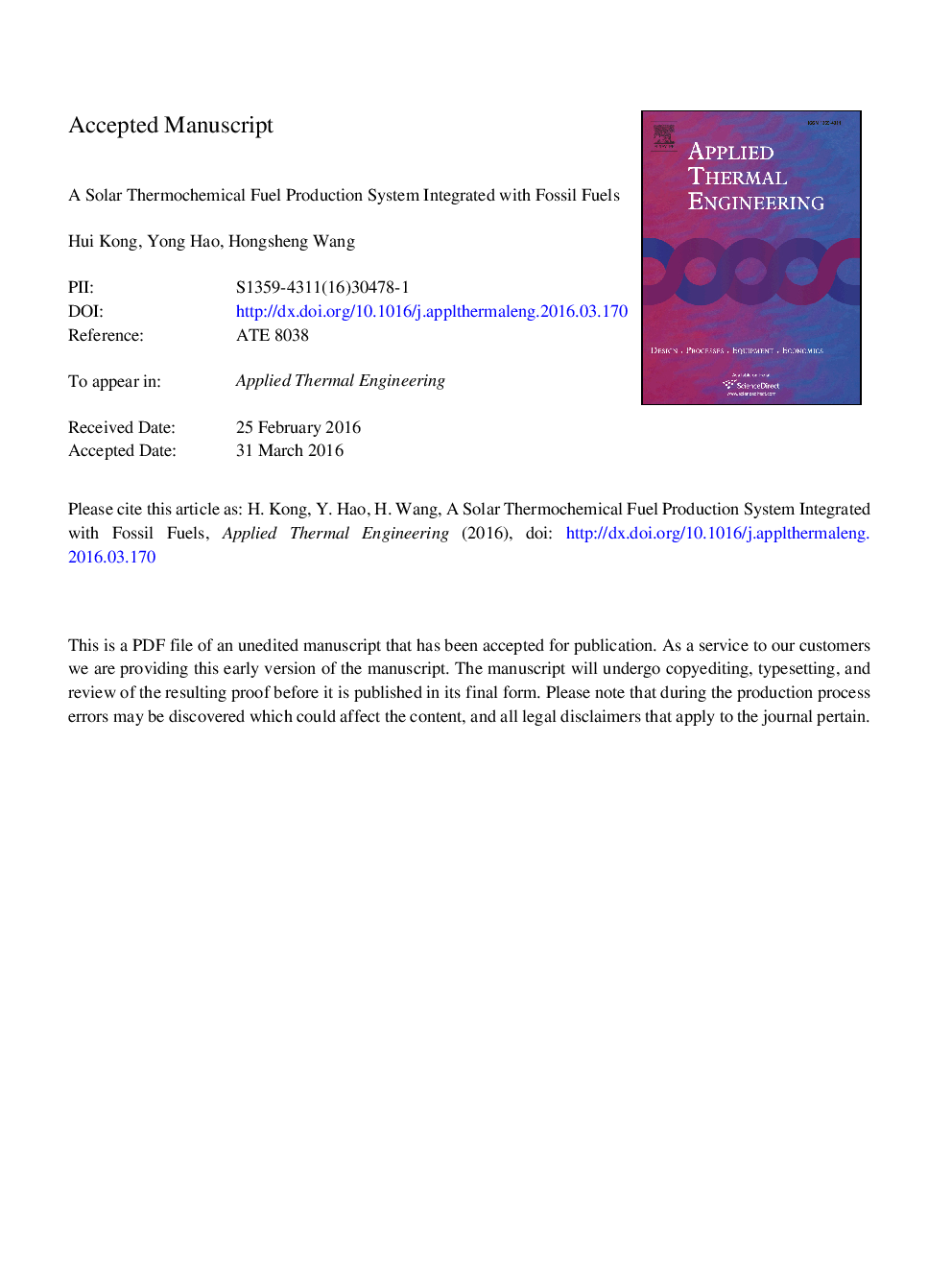| Article ID | Journal | Published Year | Pages | File Type |
|---|---|---|---|---|
| 7046952 | Applied Thermal Engineering | 2016 | 29 Pages |
Abstract
Thermochemical cycling (TC) is a promising means of converting solar energy and storing it in chemical fuels. Isothermal solar TC has the potential of achieving high solar-to-fuel efficiencies contingent on effective gas-phase heat recovery at high temperatures. We propose an approach of simultaneously recovering waste heat and unreacted gas species (e.g. H2O or CO2) downstream the isothermal TC reactor by taking advantage of endothermic reactions of certain fossil fuels (e.g. CH4). Such comprehensive utilization and the syngas produced enable a polygeneration system for simultaneous power and methanol production with the possibility of eliminating the self-generation power plant that is conventionally needed for methanol production. The scheme is proposed based on the type of splitting reaction in isothermal TC, and optimization of the polygeneration system is discussed with solar energy conversion efficiency as the objective. Fossil Fuel Consumption Rate of methanol production is about 22Â GJ/ton, lower than typical values in current industrial processes. Compared with direct solar reforming or direct combustion of the same amount of fossil fuels, this new approach features lower carbon emission per unit calorific value of fuel obtained due to the incorporation of the isothermal TC upstream.
Related Topics
Physical Sciences and Engineering
Chemical Engineering
Fluid Flow and Transfer Processes
Authors
Hui Kong, Yong Hao, Hongsheng Wang,
